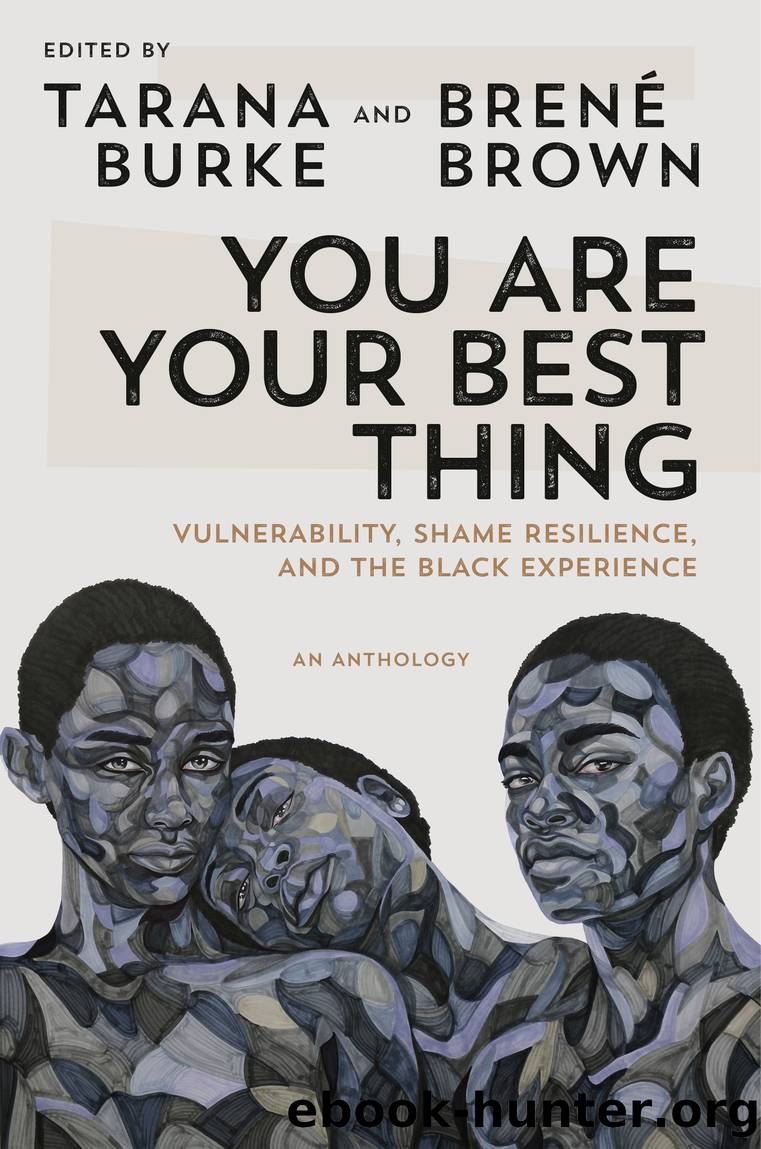You Are Your Best Thing by Unknown

Author:Unknown
Language: eng
Format: epub
Publisher: Random House Publishing Group
Published: 2021-04-27T00:00:00+00:00
FEELING THE BLUES: THE POLITICS OF VULNERABILITY
Iâm guilty at times of running from vulnerability. Whoever is vulnerable, at risk, disposable, and dispensable is at the heart of the politics of vulnerability. Our identities matter, and safety about who we are vulnerable with is important. Should I be vulnerable with white men who fear me? Should I be vulnerable with police who dehumanize me? These questions are important for us to weave the connection to how vulnerability can cultivate healing-centered engagement with young people.
Studies of vulnerability, in general, have examined a range of disabling qualities and diminished capacities resulting from a place of helplessness or shortcoming. Brené Brown came along and completely changed the game, showing us the power that can come from discovering vulnerability in our personal and professional lives. But Iâm also mindful that there is a politics of vulnerability when working with youth. Some of us can afford to be more vulnerable than others. Power, privilege, security are all conditions that can affect who is vulnerable, the consequences of being vulnerable, and what we gain from being vulnerable in our relationships with young people. So we also have to understand how issues of race, gender identity, social class, and power all determine the consequences of our vulnerability.
The blues taught me everything I needed to know about the politics of vulnerability, so letâs return to the blues. The blues is an art form with roots in the Deep South. It is born from spirituals, chants, work songs, and field hollers created by enslaved Africans. The music evolved into revivalist hymns and folk music. At the heart of the blues are stories that convey suffering and joy, struggles and triumph, pain and pleasure. What makes the blues so powerful is that the artist can connect to the lyrics from some deep personal experience. So when B. B. King belts out, âThe thrill is gone,â heâs singing from a lived experience, the pain of going through heartbreak and the joy of coming out on the other side. Itâs a type of emotional vulnerability. But the blues was also shaped by structural vulnerability, the laws, policies, and values that create oppression and suffering. The fact that the blues originated on Southern plantations in the nineteenth century is in itself an example of structural vulnerability. Structural vulnerability means that some groups in our society (racial, gendered, social class, religious) are likely to experience some form of social misery like poverty. Social misery is not just an individual experience, but a collective one. Yet these two forms of vulnerability (structural and emotional) work together. Structural vulnerabilityâpoverty, gender marginalization, racial oppressionâfuels and produces collective emotional harm and shared psychological injury, the ingredients for emotional vulnerability.
Now here is the point: In order to transform structural vulnerability, we need to tap into our emotional vulnerability. This is what I learned in my work with young people over the years. I have kept this in mind in all of my interactions with Black youth, personally and professionally.
Download
This site does not store any files on its server. We only index and link to content provided by other sites. Please contact the content providers to delete copyright contents if any and email us, we'll remove relevant links or contents immediately.
Professional Troublemaker by Luvvie Ajayi Jones(29644)
Whiskey Words & a Shovel I by r.h. Sin(19379)
Rewire Your Anxious Brain by Catherine M. Pittman(18628)
Healthy Aging For Dummies by Brent Agin & Sharon Perkins RN(17032)
Cat's cradle by Kurt Vonnegut(15316)
Talking to Strangers by Malcolm Gladwell(13338)
The Art of Thinking Clearly by Rolf Dobelli(10400)
They Both Die at the End by Adam Silvera(9795)
The 5 Love Languages: The Secret to Love That Lasts by Gary Chapman(9767)
Doing It: Let's Talk About Sex... by Hannah Witton(9271)
The Compound Effect by Darren Hardy(8916)
Thirteen Reasons Why by Jay Asher(8878)
Goodbye, Things by Fumio Sasaki(8570)
Wonder by R.J. Palacio(8561)
Tools of Titans by Timothy Ferriss(8356)
Atomic Habits: Tiny Changes, Remarkable Results by James Clear(8312)
Becoming Supernatural by Dr. Joe Dispenza(8191)
Wonder by R. J. Palacio(8092)
Change Your Questions, Change Your Life by Marilee Adams(7725)
